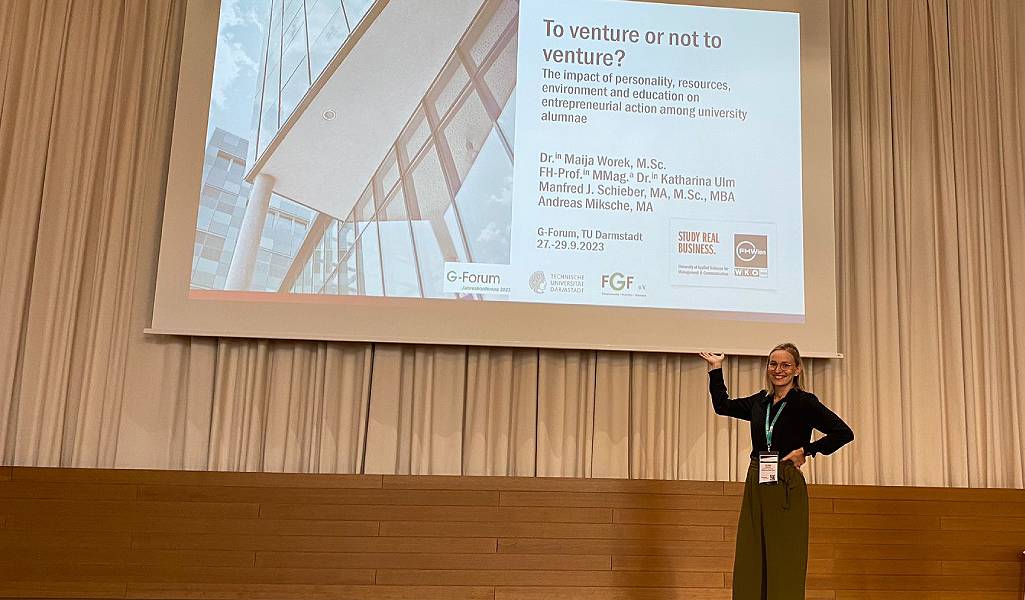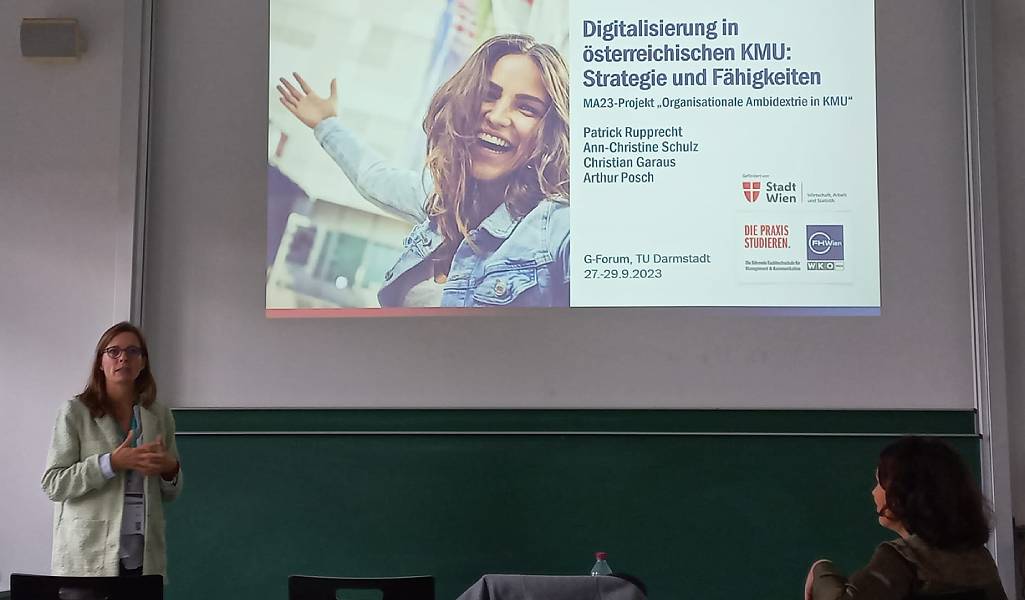Ann-Christine Schulz from the Institute for Digital Transformation & Strategy (IDS) and Maija Worek from the Management & Entrepreneurship Study Programs gave several presentations at the largest German-speaking conference on entrepreneurship and family businesses in Darmstadt.
In a joint presentation at the conference on business foundation research, Ann-Christine Schulz and Maija Worek presented their findings on the topic of “Serial Acquisition in Family Businesses”. After all, every company acquisition also offers family businesses a specific opportunity for strategic transformation.
The study presented shows that these desired changes are supported by efficient processes as well as with innovative freedom. Both should be embedded in a comprehensive corporate strategy and serve clearly defined goals. For Ann-Christine Schulz and Maija Worek, the respective corporate culture is also of crucial importance for the successful integration of acquired companies into family businesses.
“To venture or not to venture?”
In another presentation, Maija Worek of the Management & Entrepreneurship Study Programs raised the question “To venture or not to venture?”. In this study, the influence of personality, resources, environment and education on the entrepreneurial behaviour of university graduates was investigated.
The results presented show that classic founder characteristics such as risk-taking, achievement motivation and internal control as well as financial seed capital have a significant influence on the implementation of a founding a business. What was surprising for the research team was that social capital has a positive influence on the propensity to found a company, but a negative influence on the implementation of the founding. Furthermore, Maija Worek, Katharina Ulm, Manfred Schieber and Andreas Miksche show that a previous university degree has a positive influence on the propensity to start a business.
Balanced and Open – but often without a plan
Ann-Christine Schulz was also represented at the “G-Forum” with another presentation. She spoke about the latest findings of the project “Ambidexterity in SME”, which is funded by the City of Vienna (MA23). This research project investigates the balance between efficiency and innovation to cope with the digital transformation for small and medium-sized enterprises (SMEs).
Initial study results show that Austrian SMEs tend to focus on efficiency, but do not neglect innovation activities. Despite the great openness and affinity of domestic SMEs towards digital topics, digitalisation is only firmly established in a few corporate strategies. Ann-Christine Schulz and her co-author Patrick Rupprecht from IDS at FHWien der WKW see strategic anchoring as a crucial recommendation for successful management of the digital transformation.

